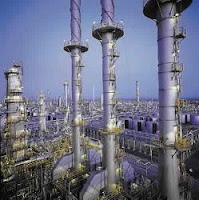
In a similar self destructive style to his new found economic partner Iran, Hugo Chavez's Bolivarian revolution, funded by oil revenues, is facing mounting difficulties. The World Bank's president elect Robert Zoellick criticised Chavez and his socialist policies today, during a visit to Mexico. Venezuela would not only face the consequences of an overheating oil driven economy, but would also suffer due to political decisions, he said. Let's set aside questions of whether World Bank presidents should make statements that essentially mirror US foreign policy. The primary issue here is if Venezuela reaches a point of meltdown, what will be the impact internally and on its foreign relations.
Venezuela is the world's ninth largest oil producer and provides roughly 13% of the United States imported oil. Given the instability in the Middle East, a secure supply from Venezuela is increasingly important. If Chavez leads Venezuela into deep economic turmoil, he may take an even more strident anti US position. Having courted with previously, he may turn to pariah states like Iran and North Korea as unlikely allies. The upshot of all this would be the economic empowerment of repressive regimes rather than their - hoped for - economic squeeze and internal reform.
Chavez has indicated that he may withdraw from the World Bank and IMF. Encouraged by record oil revenues, Venezuela may continue on the path to global economic independence with its nationalization and redistribution of wealth programmes, but if the management isn't there problems might arise. Having pursued an ardent socialist agenda since becoming president in 1999 - Plan Bolivar 2000 was the seminal mission - without any serious economic disaster, there is cause for optimism. Whatever the rhetoric is from Caracas or Washington, multinationals and oil producers are driving positive relations. Although Chavez will probably not be as inept as the Iranians in managing the economy, his over-confidence may well be his downfall. Ruth de Krivoy, a former Central Bank president who runs Síntesis Financiera, a Caracas think tank, sees excessive nationalization as a source of economic woe: "The government believes that state-run companies...will take the place of the exploiting' business class," she notes. "But if you erase the private sector from the map, what do you have left? Not much."
No comments:
Post a Comment